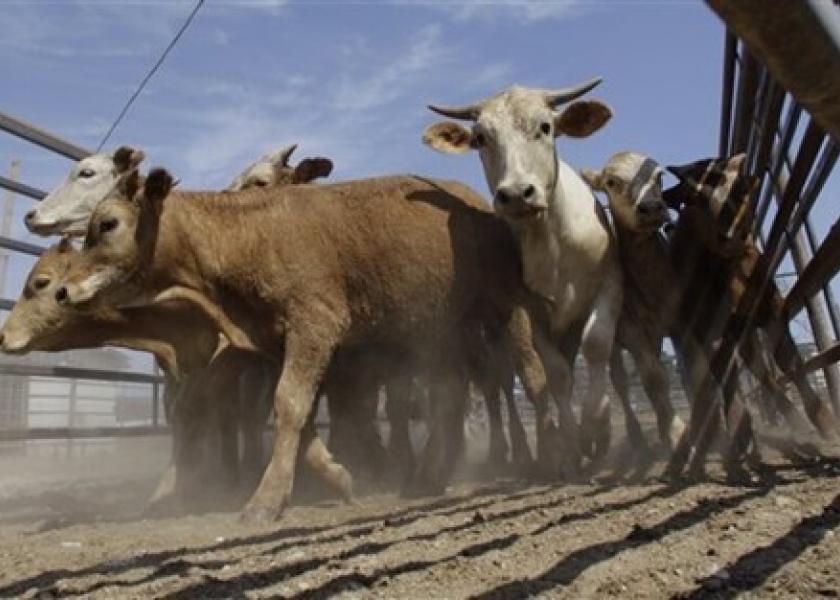USDA Officially Launches Pilot Cattle Contracts Library

USDA on Tuesday launched a pilot Cattle Contracts Library as it was directed under the Consolidated Appropriations Act of 2022.
The aim of the pilot library, which will be live and available to access on Feb. 6, is to increase market transparency for cattle producers by providing a new public disclosure that will reveal key terms, conditions and volumes under which cattle are contacted, according to USDA’s press release.
USDA says the library will “empower” producers to:
• Negotiate better terms
• More carefully monitor risks in marketing preferences and pricing
• Take advantage of market opportunities by producing cattle that the market demands
Read more: Two-Thirds of Consumers Deem Transparency Very to Extremely Important, Survey Finds
Tom Vilsack, USDA secretary, says the agency is “committed” to leveling the playing field for cattle producers.
“The Cattle Contracts Library Pilot Program supports this commitment by providing producers with the market information they need to make informed production, marketing, and business decisions,” Vilsack says.
What's Available
According to USDA, the pilot will mirror the working library that was shared with stakeholders in 2022 but will now contain active contracts.
Information available to the public in the library will include:
1. Quality, breed and weight
2. Base price determination
3. Base price adjustments and selling basis options
4. Contract specifications in quality, yield, breed, weight, delivery, financing, profit -and risk-sharing
5. Premiums and discounts
Read more: Will Volatility and Uncertainty Delay the Next Cattle Cycle?
As the pilot continues throughout the year, USDA says it will “enhance” transparency through additional reports and features as they develop.
To better understand how to use the pilot library, producers are invited to join a listening session in Feb., with an exact date to be announced by USDA after the Feb. 6 library release.







